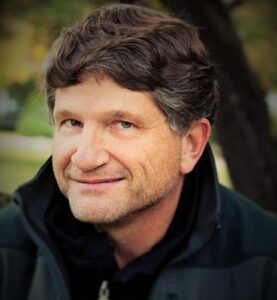When I was in college, I remember having a conversation with a few friends about one of our classmates who was 30 at the time. We called him “the old man.”
As young men, we talked about aging in dire terms, framing it in the context of our parents and grandparents. We decided that the 40th birthday indicated a point of no return. And 50? That was one-foot-in-the-grave territory.
Eventually I turned 30. And then 40. And now I’m past 50. I blew past all of those supposed stop signs on my life and now I am seeing flashing exit signs for my retirement. And I’m not so sure I’m ready for that juncture.
No one ever really thinks about aging except when we want to stop its inevitability. And since we don’t want to think about getting old, we certainly don’t want to think about retiring.
I’ve somewhat followed the financial planner’s advice on saving for retirement, tucking away money in an account that I’ll use one day to pay my rent and buy life’s necessities. But the amount I’ve saved really won’t allow me to live my twilight years in leisure. I won’t be the one tanned from golf courses or ocean cruises. I won’t sit around lunch tables in swanky restaurants reminiscing about the good old days.
And secretly, I want to take that retirement money and blow it all, sailing around the world giving folded $100 bills to strangers.
But neither of those will bring long-term satisfaction to my twilight years. Despite my financial planning, I haven’t given enough thought to spiritual planning. But here’s an irony; we spend billions of dollars on wrinkle creams, hair loss concoctions, and hair dye but give hardly a passing thought to investing in things that will help our retirement have some purpose.
I don’t believe I was put on this planet to put my feet up, to “call it good,” and let someone else take up the charge.
So I’m assessing my life with a balance sheet that doesn’t focus on the projected inflation rate or expected withdrawal rates. Instead, I want my retirement books to have a balance of the following things:
Healthy fellowship – I want to have a vibrant kinship with fellow believers, cultivating friendships that build each other and others up. Ecclesiastes reminds us the “threefold cord is not quickly broken.”
Mentoring of others – The Bible instructs older believers to have an active role in training the next generation. Psalm 145:4 says, “One generation shall commend your works to another, and shall declare your mighty acts.” It is my responsibility to remind the next generation that God is real, that he is alive and well and that he makes a difference in our society.
Kingdom service – Many churches relegate retirees to attending monthly luncheons and passing out bulletins. I want my retirement to help the local body, drawing on my experience to help lead through difficult times.
Denver Institute for Faith and Work has helped Christians all around the metro area connect their labor to God’s path, fusing their good work with his design for this planet. But God’s purpose for your life doesn’t end when you’ve hit the time clock for the last time.
At the end of my life, I want to have made a difference.

David Rupert is a Golden-based writer who has more than 2,000 articles on faith, culture and vocation published in a variety of publications. He is the community editor for the Denver Institute blog. Most recently he was content editor at the High Calling, helping Christians connect their faith to the workplace. He regularly writes for Patheos.